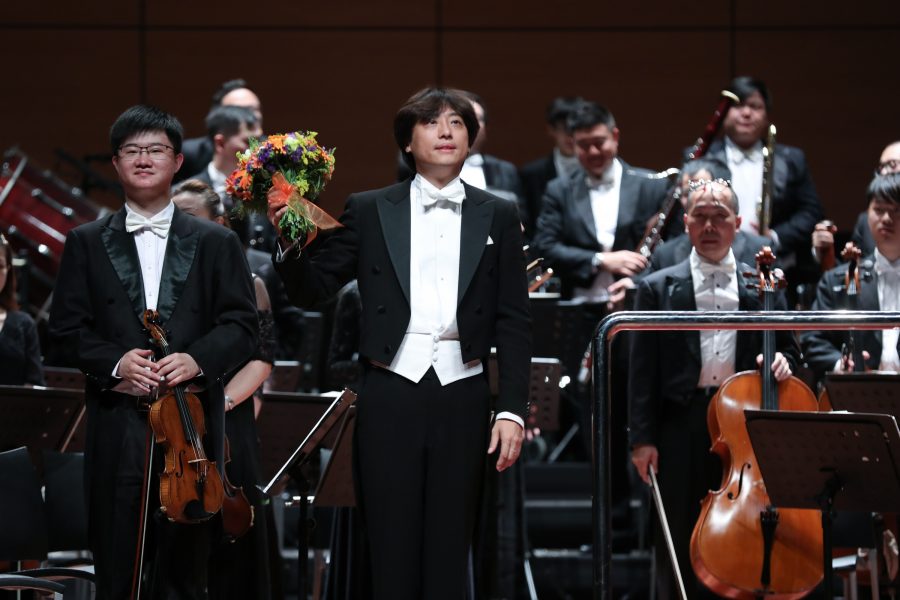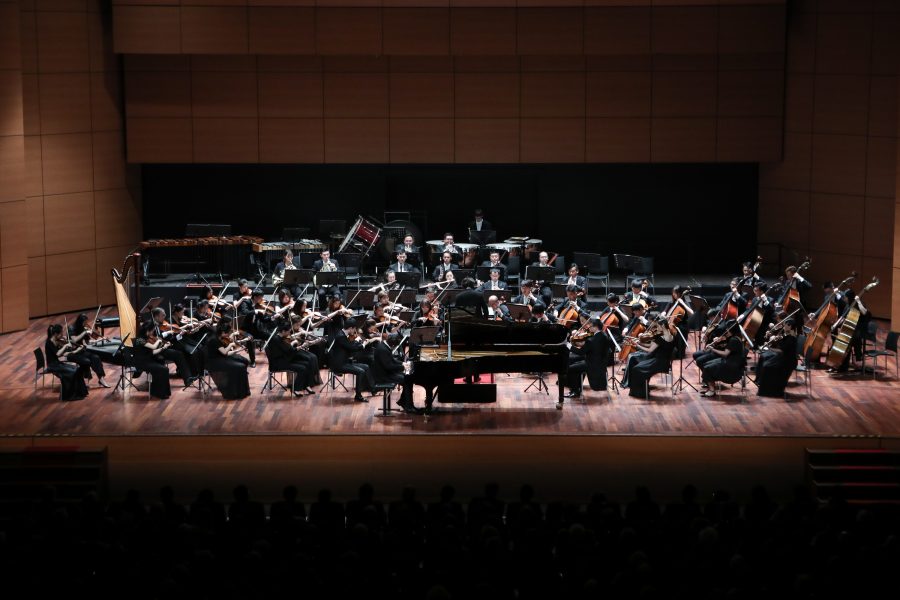This year’s IKSV 47th Istanbul Music Festival came with many orchestral treats, including the Luxembourg Philharmonic with Yuja Wang, the Tekfen Philharmonic with cellist Daniel Muller-Schott, the Moscow Soloists with violist Yuri Bashmet, and more. And the final performance hosted – hold tight – the Shanghai Philharmonic, hailing all the way from China. The featured soloist was Fazıl Say, Turkey’s world-renowned pianist and composer, with Maestro Liang Zhang as the conductor, a figure to take heed of. Now, Say is a world-heralded pianist welcomed in concerts across the world, and he also performs regularly in the Far East, particularly in China and Japan. So, the orchestra-soloist match was particularly meaningful in this case, as, naturally, we, the audience in Turkey, miss out on those performances. But this time, the performances were brought right before us.

Liang Zhang is a man of amazing deeds. His career in music is already versatile. Besides his position as conductor and vice-music director of the Philharmonic, he also holds adjunct professorship at the Shanghai Music Conservatory, is a successful pianist known particularly for his performances in chamber ensembles, and is Director of the Professional Choir of Committee of the Shanghai Association of Musicians. Furthermore, he is also an adjunct professor at the East China University of Political Science and Law in Shanghai. Kudos, and wow.
The Shangai Philharmonic came on stage with a world premiere, performing the Ye Xiaogang, i.e. “The Fading Ginkgo Biloba,” a ten-minute composition drawing attention with the oriental tunes and tone of the flute, flat and minor notes of the strings, the musical droplets of the harp, and the subtle, eerie interjections of the drum. The imagery it evoked in me was that of endless Chinese fields and meadows, passing by while riding on a bike, with the wind in hair and springtime in the air. And what’s a Chinese composition without a gong? The gong was there too, along with the French horn and the violin tremolos, adding tension to the air, my happy springtime giving way to fading nature.

Fazıl Say joined Maestro Zhang and the Shanghai Philharmonic next on stage, for a performance of Beethoven’s Piano Concerto #3 in C Minor (Op. 37). Part of the irresistible magnetism of Say – in addition to the virtuosity, a given – is the energy, the vibes and aura that he brings into the piece and performance and the music. That evening too, he brought the ebony and ivory notes to life like only he does. Say’s encore was Kara Toprak, his composition based on the poem and music of Aşık Veysel, a renowned “aşık,” i.e. poet, singer and player of saz all-in-one, in Turkish folkloric music. This is the piece where he does his trademark pizzicato on the inside of the piano.
Following the interval, the Shanghai Philharmonic’s choice of symphony was No. 6 in D Major, of Dvorâk, which I welcomed, as, despite his renown, Dvorâk is a composer performed less frequently in programs. It was disappointing to notice that the previously jam-packed auditorium – a standard in Say’s performances – now had as much as a few dozen vacant seats. Some people had left after the Say performance. I guess they get to see the Shanghai Philharmonic perform every day! The rest of us eagerly stayed, however. And we applauded enough to convince the orchestra to provide an encore. It was a Chinese composition, of a composer and title unannounced, and unknown to the audience. But we happily accepted, and as an exceptional, oriental finale to this year’s IKSV Istanbul Music Festival. Keeping fingers crossed for many more encores from Say, and from the Shanghai Orchestra!
Photos taken by Ali Güler and courtesy of IKSV.









